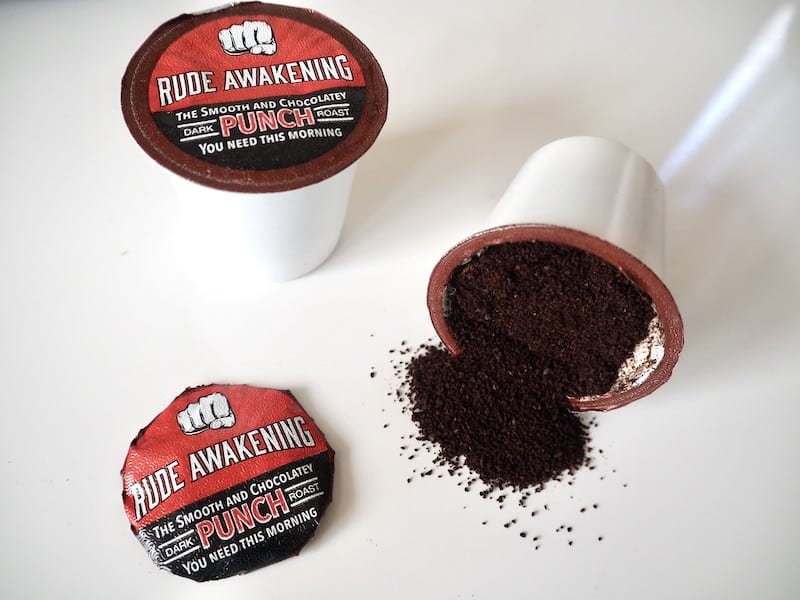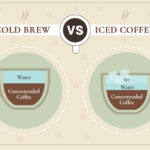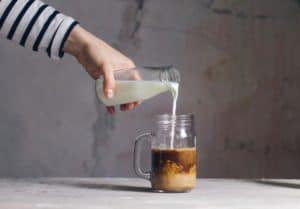
You might not realize it, but coffee – like most food – expires. Old coffee is not necessarily dangerous to drink, but it has less flavor and is more likely than fresh coffee to taste bitter or burnt. Keeping coffee fresh is an uphill battle, and the shelf life of coffee is surprisingly short. Most coffee companies ship their coffee in vacuum-sealed bags to help retain as much freshness as possible for you, the customer. This is all well and good, but what about K-cups?
K-cups contain ground coffee, which makes them more susceptible to the staling effects of air exposure, but they are also completely sealed, which helps them stay fresh for longer than bagged coffee. In this article, we’ll teach you everything you need to know about keeping coffee fresh and explain how long you can expect K-cups to stay drinkable.
Why does coffee go stale?

Once coffee beans are ground, they start to oxidize quickly, and their flavor changes. Oxidation is a chemical process that often occurs in nature and is responsible for metal rusting. When something oxidizes, its chemical makeup is changed permanently. Oxidation chemically alters the oils and compounds in coffee responsible for creating the delicious, complex flavors coffee lovers are after. Once the coffee has started oxidizing, it gets continuously less flavorful until it tastes nothing like it did when it was fresh.
You can probably guess from the word oxidation that oxygen is the culprit. Coffee beans start oxidizing immediately after they are roasted, and once the beans are ground, the process speeds up considerably. If you want the freshest coffee possible, you want to buy directly from a roaster that vacuum seals their bags and grinds right before you brew. This minimizes your coffee’s exposure to air – and therefore oxygen – and ensures you get the best-tasting cup you can.
K-cups vs Whole Bean

K-cups are one of the most convenient ways to make coffee, and we appreciate their convenience. Waking up and making coffee with the push of a button is a great way to save time and make your morning less hectic, but it comes with a few drawbacks.
Since K-cups contain pre-ground coffee, they won’t ever be as fresh as whole beans can be. This doesn’t automatically make them bad, but the difference is noticeable. If you have a reusable K-cup filter, you can do a side-by-side test by buying the same coffee in a pre-ground K-cup and a whole bean. You might be surprised by how different the freshly ground coffee tastes compared to the pre-ground K-cup.
Do K-Cups actually expire?
Simply put, no. If you look closely at a K-cup, you’ll notice there is a best used by date printed on the side. This isn’t an expiration date but rather a recommendation to use the K-cup prior to the time printed on the packaging. Nothing special happens on the best used by date, but it estimates when the coffee will start to lose its freshness. Typically, this date is about eight months to a year from when you purchase the K-cups, but it depends on how long they’ve been sitting on the shelf.
But we hear you ask, you just said that ground coffee starts going stale immediately, how could K-cups last for a year? That’s a great question, and the answer is a combination of clever packaging techniques and diminishing returns. Most K-cup manufacturers use a vacuum sealing method that completely removes oxygen from the pod by replacing it with nitrogen. Oxidation only occurs in the presence of oxygen, so this technique doesn’t just slow oxidation; it prevents it entirely.
The other factor is diminishing returns. Since coffee starts oxidizing immediately after roasting and oxidizes even more rapidly once it is ground, coffee that comes in K-cups has usually already lost some freshness by the time it’s packaged. This means that the nitrogen replacement method preserves the current freshness, but some freshness has already been lost.
Is it safe to use K-cups after the best-by date?
In general, yes. We don’t recommend drinking K-cups that are several years old, but there should be no issue if they are only slightly past the best by date. Expiration dates – as you find on milk or eggs – should not be ignored since those products spoil and can make you sick if you consume them after the expiration date. The best by date on K-cups is just a recommendation meant to ensure you get the best freshness and flavor possible.
Conclusion
They don’t have expiration dates, but K-cups do have best-by dates. If you want the freshest coffee and best flavor from your K-cups, you should try to use them before the best-by date, but drinking them after it won’t harm you. Keeping coffee fresh can be a struggle since it starts going stale immediately after it’s roasted. K-cups are a great way to keep coffee fresh for an extended period of time but won’t give you the freshest coffee. If you want your coffee to be as fresh as possible, consider buying whole-bean coffee and grinding it right before you brew.
RELATED READS:

















